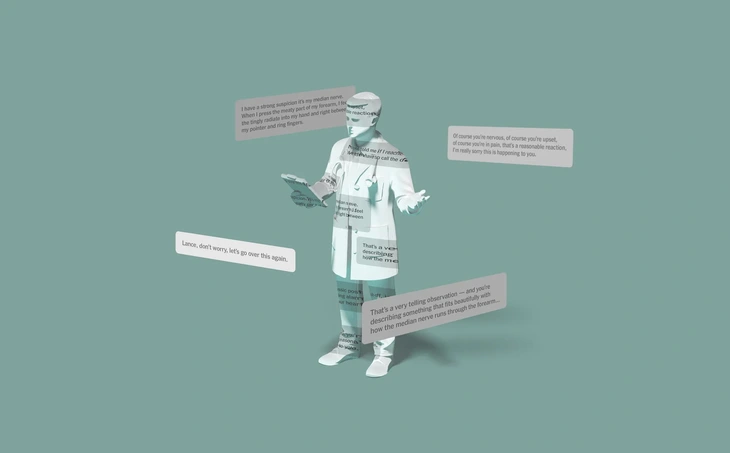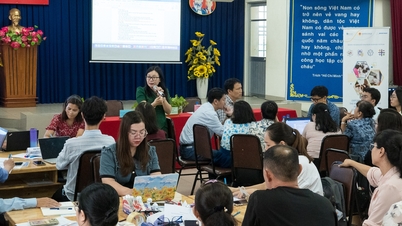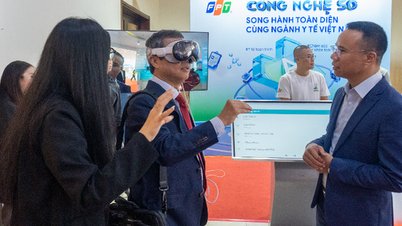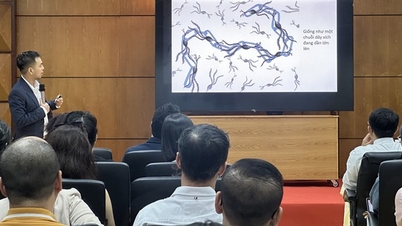
AI chatbots often provide diagnoses, explain test results and advise on treatment - Photo: NEW YORK TIMES
More and more Americans are seeking health advice from artificial intelligence (AI), a trend that stems in part from shortcomings in the country’s own healthcare system, according to the Straits Times on November 17.
The newspaper cited a survey by KFF - a health policy research group - showing that by 2024, about 1 in 6 adults and 1 in 4 adults under 30 will use AI chatbots to look up health information at least once a month.
Liz Hamel, director of survey research at KFF, said the actual number could be even higher.
In dozens of interviews, many Americans said they use chatbots to compensate for shortcomings in the health care system.
For example, a writer in rural Virginia used ChatGPT to guide her recovery after surgery because she had to wait weeks for a doctor’s appointment. A psychologist in Georgia turned to AI after doctors dismissed her concerns about the side effects of her cancer treatment.
While AI can be misleading, many people appreciate that it is available 24/7, is nearly free, and especially makes users feel understood by offering convincing empathy.
“We are putting too much trust in AI, which is worrying. But it is very addictive because AI always seems extremely sure of its answers,” said Rick Bisaccia (70 years old, California).
Chatbots regularly provide diagnoses, explain test results, advise on treatment, and even prepare scripts to help patients convince doctors to follow AI-recommended treatment regimens.
However, AI is not always well-suited to medical questions. Paradoxically, chatbots may excel at solving difficult diagnostic problems, but they often struggle with basic health decisions, such as whether to stop taking blood thinners before surgery.
Representatives of OpenAI and Microsoft affirmed that they take the accuracy of health information very seriously and are working with medical experts to improve the quality of responses of AI chatbots.
Dr. Robert Wachter, Dean of the School of Medicine at the University of California, Berkeley, said it's not hard to understand why people are turning to chatbots, despite the tool's limitations.
Americans sometimes have to wait months to see a specialist, pay hundreds of dollars per visit, and often feel their concerns are not taken seriously.
“If the health system worked well, the need for these tools would be greatly reduced. But the reality is that in many cases, the alternatives to AI are either very bad or non-existent,” Dr. Wachter concluded.
Source: https://tuoitre.vn/bat-man-he-thong-y-te-dan-my-kham-benh-voi-chatbot-ai-20251117112051871.htm





![[Photo] General Secretary To Lam and National Assembly Chairman Tran Thanh Man attend the 80th Anniversary of the Traditional Day of the Vietnamese Inspection Sector](https://vphoto.vietnam.vn/thumb/1200x675/vietnam/resource/IMAGE/2025/11/17/1763356362984_a2-bnd-7940-3561-jpg.webp)









































































































Comment (0)